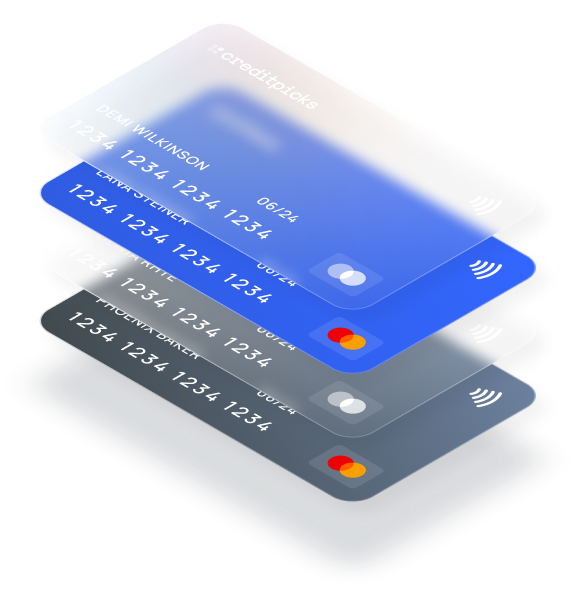Introduction
Credit cards are a significant part of everyday life in Canada. Millions of Canadians rely on them for everyday purchases, travel, and online shopping. However, despite their convenience, credit cards can also be a source of confusion and frustration, especially for those new to the world of credit. Canadians spent more than $1400 monthly on their credit cards in 2021. Due to steep credit card interest rates, thousands of customers pay millions in late payment fees each year.
This article provides a comprehensive guide to credit cards in Canada. It covers everything from the different types of credit cards available to choosing the right card, how to use credit cards responsibly, and what to do if you find yourself in debt. This article will give you a solid understanding of credit cards, equipping you with the knowledge to make informed decisions about how you use credit.
What is a credit card?
Credit cards are a type of revolving credit allowing you to borrow money from a bank or other financial institution up to a specific limit. You can make purchases and cash advances on the card up to the credit limit and must then pay back the amount borrowed plus any interest charged by the card issuer.
Unlike a traditional loan, you can make multiple purchases and payments over time if you stay within the credit limit and make at least the minimum payment required monthly (Government of Canada, 2023).
Credit cards can come with various features and benefits. These include cashback rewards, travel points, and insurance coverage. However, you must understand the terms and fees associated with your credit card to use
Why are credit cards important?
Credit cards play an essential role in the financial lives of Canadians by providing a convenient and flexible way to make purchases, access cash advances, and build a credit history. In addition, many credit cards offer rewards and benefits, such as cashback, travel points, and insurance coverage, that can help you save money and protect your finances (Government of Canada, 2023).
Furthermore, responsible credit card use can improve your credit score, which can be necessary for obtaining loans, mortgages, and other types of credit. However, despite the benefits of credit cards, you must use them wisely and avoid debt by paying off your balances in full and on time each month.
Types of credit cards
Credit cards exist for various services, rewards, benefits, and more. These cards include travel and cash-back card, cards for balance transfers, virtual cards, and even cards that track your carbon footprint and limit your spending to protect the environment. We cover some of the basic card types that are widely advertised.
Unsecured credit cards
In Canada, an unsecured credit card is a type of credit card that does not require the borrower to provide any form of collateral to obtain credit. Instead, the card issuer evaluates your credit history and income to determine the card’s credit limit and interest rate. Unsecured credit cards are the most common type in Canada and are often used for everyday purchases, travel, and online shopping.
Secured credit cards
In Canada, a secured credit card is a type of credit card that requires the borrower to provide a security deposit as collateral to obtain credit. The credit limit on a secured credit card is typically equal to the amount of the security deposit, which the card issuer holds as a guarantee of payment (Government of Canada, 2023).
Those with limited or poor credit history often use secured credit cards, as they can help establish or improve credit scores with responsible use. In addition, some secured credit cards offer rewards and benefits like unsecured credit cards, such as cashback and travel points (Government of Canada, 2018).
Rewards credit cards
In Canada, rewards credit cards offer benefits for purchasing with the card. Rewards can take many forms, such as cashback, travel points, merchandise, and gift cards. Rewards are typically based on a percentage of the amount spent on the card (Government of Canada, 2023).
Rewards credit cards can be a good option if you make frequent purchases and want to earn rewards or save money on everyday expenses. First, however, it’s important to understand the terms and fees associated with a rewards credit card. For example, some cards may have high annual fees or require minimum spending to earn rewards (Government of Canada, 2023).
Cashback credit cards
A cashback credit card offers money back for purchases made with the card. Cashback rewards are typically a percentage of the amount spent on the card. They can be redeemed for statement credits or deposited directly into the cardholder’s bank account (Government of Canada, 2023).
Cashback credit cards can be a good option for Canadians who prefer the flexibility of cash rewards over other rewards, such as travel points or merchandise. However, it’s important to understand the terms and fees associated with a cashback credit card, as some cards may have higher annual fees or lower cashback rates for certain purchases (Government of Canada, 2018).
Balance transfer credit cards
A balance transfer credit card is a type of credit card that allows cardholders to transfer balances from other credit cards or loans to a new card. The balance transfer is usually subject to a promotional interest rate, which is typically lower than the regular interest rate on the card.
Balance transfer credit cards can be helpful for Canadians who want to consolidate high-interest debt and pay it off over time with a lower interest rate (Government of Canada, 2023). First, however, it’s important to understand the terms and fees associated with a balance transfer credit card, such as balance transfer fees, promotional period length, and the regular interest rate after the promotional period ends (Government of Canada, 2023).
How to choose the right credit card
Choosing the right credit card in Canada can take time and effort, as many cards have different features, benefits, and fees. However, there are some key factors you should consider when selecting a credit card:
Assess your spending habits
Consider the types of purchases you make most frequently and your budget and payment habits to determine the type of credit card most suitable.
Understand the credit card fees and interest rates
Look for credit cards with low annual fees and interest rates and low or no foreign transaction fees if you plan to use the card for travel.
Evaluate the credit card rewards and benefits
Look for credit cards with low annual fees and interest rates and low or no foreign transaction fees if you plan to use the card for travel.
Check your credit score
Your credit score can affect your ability to qualify for certain credit cards, so it's essential to check your score before applying.
Compare credit card offers
Look at multiple credit card offers from different issuers to compare the features, benefits, and fees of each card, and choose the one that best meets your needs and preferences.
How to apply for a credit card
Applying for a credit card in Canada typically involves a few key steps, including the following
Step 1
Check your credit score
Before applying for a credit card, it's a good idea to check your credit score to ensure that you meet the minimum requirements for the card you want.
Step 2
Compare credit card offers
Look at multiple credit card offers from different issuers to compare the features, benefits, and fees of each card, and choose the one that best meets your needs and preferences.
Step 3
Gather the required documents
You will typically need to provide personal information, such as your name, address, and Social Insurance Number, as well as proof of income and employment.
Step 4
Fill out the application form
Once you have chosen a credit card and gathered the necessary documents, you can complete the application form online or in person.
Step 5
Wait for approval
The credit card issuer will review your application and credit history to determine whether to approve your application. If approved, you will receive your credit card in the mail within a few weeks.
It's important to note that applying for multiple credit cards at once can negatively affect your credit score, so it's best to apply for one card at a time and wait for a response before applying for another.
Students and people who have no credit history
Student credit cards are entry-level products with limited “frills” and no annual fees, particularly for those just starting their financial journey. Similarly, a secured credit card allows them to pay cash upfront to a security account as collateral. Once they demonstrate strong repayment habits, the issuer returns the collateral, and the account becomes unsecured.
A secured card may be a good option for someone new to the country. Secured credit cards are helpful to borrowers with no established credit history or those looking to rebuild their credit. Knowing what you are getting into with these cards is essential. Make sure you ask the following questions:
- Are there any annual fees charged to the card?
- Do my repayments on the card get reported to credit agencies? Unfortunately, some secured cards are not reported, which defeats the purpose of using them to build your credit score.
The best credit cards in Canada have “kickers.” For example, some student credit cards see increased credit limits once a student demonstrates a good repayment record. Some secured cards also put your security deposit into an interest-bearing account. As a result, the collateral you receive back when transitioning to an unsecured version is more than what you initially put in.
If you must choose between student or secured cards, these perks can be deciding factors that narrow down your final choices.
Specific personal borrowing needs
Some borrowers may have specific financial needs. With a good credit score, you can find cards that offer a 0% introductory APR and low ongoing interest rates.
For example, if you have a consistent income stream and occasionally carry a balance on your account, cards with low interest might be the best fit. When pursuing this such options, ensure you’re asking questions such as:
- What are the fees for late payments on this card? Is there a waiver option? If so, what are the criteria to meet it?
- What is the APR once the introductory or promotional rate expires?
- How long does this promotional offer rate last before the actual rate kicks in?
Finding the Latest Tax Rates
The
CRA website is the most reliable source for federal and provincial/territorial tax rates and brackets. By subscribing to their updates, you can ensure you have the most accurate and timely information.
Do credit cards impact your credit score in Canada?
Multiple factors determine your credit score. These include the following:
- The number of open credit accounts.
- Payment history.
- Credit utilization (the ratio of the amount of credit you use compared to how much credit you have been issued).
- Collections or public records.
- Credit history length (less critical).
- The number of “hard” inquiries (less important).
When you access your credit report (which you can do for free by subscribing to our monthly newsletter), you will see all the open credit accounts and how much is owed on each. You will also see whether you have missed payments or other issues with your score and report.
Not paying your credit card bill every month (or whenever it is due) can negatively impact your credit score. Similarly, making on-time repayments can boost your credit score and report and make you a more attractive borrower. This uplift can result in better interest rates and other terms on future credit facilities, such as
a competitively priced mortgage.
The effects of closing a credit card account
Closing a credit card account reduces the total credit available to you. As a result, this action potentially increases your credit utilization rate and, therefore, can decrease your credit score.
For example, a Canadian consumer spends an average of $1,500 monthly on their credit card. The cardholder has two credit cards with a credit limit of $5,000 and $1,000, respectively. The utilization rate would be $1,500 / ($5,000 + $ 1,000) = 25%.
If the consumer decides to close the $1,000 credit card, then the utilization rate is $1,500 / $5,000 = 30%.
To a credit bureau and, by extension, lender, this represents a less desirable credit candidate than when they utilized 25%. As such, keep credit accounts open even if you use them sparingly.
How you manage your credit cards matters
Using a credit card is one of many ways they can impact your score. Your score is affected even by your decision to open a credit card account.
For example, a potential card issuer performs a “hard” credit check when you apply for a new credit card. This inquiry is a deep-dive review of your credit history to determine your borrower risk level. This hard search stays on your credit report for two years and up to six years—though the impact of the inquiry decreases over time.
“Soft” inquiries do not impact a credit score. A soft credit check usually verifies your credit card or other financing eligibility. Understanding which inquiry is being performed is critical when exploring new personal credit options. Numerous hard inquiries are unattractive to borrowers, even more so if any applications are rejected.
Remember, a credit card is considered “revolving credit” since it allows cardholders to draw, repay, and then draw funds again against a credit limit. This differs from term credit, such as an
unsecured loan. Over time, these loans are paid back in installments, and the repaid amounts are not accessible once paid in. If you have instalment credit, such as a student loan, and a credit card, the mix of installment and revolving credit can boost your score. Credit diversity shows lenders you can handle varying types of credit.
Best practices when using a credit card
Using a credit card wisely is integral to managing personal finances in Canada. Here are some tips for using a credit card responsibly:
Set a budget
Before using a credit card, create a budget to ensure you can afford to pay off your monthly balance.
Pay your balance in full and on time
Always pay your credit card balance in full and on time to avoid late fees and interest charges.
Monitor your credit card statements
Check your credit card statements regularly to ensure that there are no fraudulent charges or errors.
Avoid cash advances and high-interest-rate purchases
Cash advances and high-interest-rate purchases, such as luxury items, can lead to high-interest charges and debt.
Choose a credit card with low fees and interest rates
Look for credit cards with low annual fees and interest rates to minimize expenses.
Limit your credit card applications
Applying for too many credit cards can negatively affect your credit score, so limit your applications to those that you need.
How do credit card repayments work in Canada?
Credit card account payments usually “post” immediately. A payment “posting” means the repaid funds are applied to your credit card account balance. You can use the card’s entire limit again if payment is made in full. If you make a partial payment, you can only use the partially repaid amount and any available credit you may have had on the card.
For example, your new card has a $5,000 credit limit. You spend on your card and eventually reach the $5,000 limit. The lender then stops you from spending more on the credit card.
Then, you decide to repay $3,000 on the card, bringing the balance down to $2,000. So now you can spend $3,000 more on the card but still owe the lender the remaining $2,000 to reach a zero balance.
Credit cards are not free money. Most credit cards allow users to repay the money they borrowed for purchases without interest within a month. After that, they charge interest rates of 23% APR or more. So, in the example above, if you did not pay back the $2,000 balance on time and kept it for a whole year, you would pay $460 more in interest! And that does not include any other fees or penalties.
It is important to use credit cards responsibly. It is easy to impulse buy or spend beyond your means. It would be best if you managed your credit and spending habits.
How to deal with credit card debt
Dealing with credit card debt can be a stressful experience. However, several strategies can help you manage and pay off your debt.
Create a repayment plan
Develop a plan to pay off your credit card debt over time, considering your budget and interest rates.
Prioritize high-interest debt
If you have multiple credit card debts, prioritize paying off the balances with the highest interest rates first.
Consider debt consolidation
Debt consolidation involves combining multiple debts into one loan with a lower interest rate, making it easier to manage your debt and pay it off over time.
Seek professional help
If you are struggling with debt and cannot make your minimum payments, consider seeking the help of a credit counselling agency or debt relief program.
Limit your credit card applications
Applying for too many credit cards can negatively affect your credit score, so limit your applications to those that you need.
Act as soon as possible if you are struggling with credit card debt, as ignoring the problem can lead to increased interest charges, fees, and damage to your credit score.
Frequently Asked Questions About Canadian Taxes
What are the major credit card providers in Canada?
Canada’s major credit card providers include Visa, MasterCard, and American Express. These companies issue credit cards through various financial institutions, such as banks and credit unions (Government of Canada, 2023).
How do I apply for a credit card in Canada?
To apply for a credit card in Canada, you must choose a financial institution and a credit card that suits your needs. You can apply online, by phone, or at a bank branch. The application process typically requires you to provide personal information, such as your name, address, social insurance number, and employment details (Financial Consumer Agency of Canada, 2018).
What factors affect my credit card eligibility?
Eligibility for a credit card in Canada depends on factors such as your credit score, employment status, income, and existing debt levels. Lenders may also consider your payment history on other credit accounts, the length of your credit history, and your recent credit inquiries (Government of Canada, 2021).
Reference: Government of Canada. (2021). Understanding credit. Retrieved from https://www.canada.ca/en/financial-consumer-agency/services/credit-reports-score/understanding.html
What is the average interest rate on credit cards in Canada?
The average interest rate on credit cards in Canada varies depending on the type of card and the issuer, but it generally ranges from 19.99% to 22.99% for standard cards. Some cards may offer lower introductory rates or lower rates for balance transfers, while others may have higher rates for cash advances (Financial Consumer Agency of Canada, 2021).
Reference: Financial Consumer Agency of Canada. (2021). Credit card interest rates. Retrieved from https://www.canada.ca/en/financial-consumer-agency/services/credit-cards/interest.html
Are there any consumer protection laws for credit card users in Canada?
Yes, there are consumer protection laws in place for credit card users in Canada. The Credit Business Practices Regulations outline the rules that credit card issuers must follow, such as providing clear and simple disclosure of key terms, obtaining express consent for credit limit increases, and implementing practices to protect consumers from unauthorized transactions (Government of Canada, 2021).
Reference: Government of Canada. (2021). Consumer protection: Credit and loans. Retrieved from https://www.canada.ca/en/financial-consumer-agency/services/credit-loans/consumer-protection.html
Conclusion
Recap of Key Points
Credit cards are a valuable financial tool for many Canadians, providing a convenient and flexible way to make purchases, build credit history, and earn rewards or benefits. However, you must understand the terms and fees associated with your credit card to use it responsibly and avoid falling into debt. By choosing the right credit card, creating a budget, paying off balances in full and on time, and seeking help (if needed), you can make the most of your credit card usage and achieve your financial goals.
As with any financial product, it is crucial that you stay informed and up to date on the latest trends, regulations, and best practices related to credit cards. The Financial Consumer Agency of Canada and the Government of Canada offer a wealth of resources and information on credit cards, including tips on choosing the right card, using it responsibly, and dealing with debt. By taking advantage of these resources and making informed decisions about credit card usage, you can stay financially secure and achieve your long-term financial goals.
Importance of responsible credit card use
Responsible credit card use is important in Canada because it can significantly impact your financial well-being. Using credit cards responsibly can build a credit history, earn rewards or benefits, and access credit for important purchases or investments. However, irresponsible credit cards use, such as carrying high balances or missing payments, can increase interest charges and damage credit scores. This can make obtaining future loans or mortgages more difficult and limit financial options and opportunities.
By using credit cards responsibly and paying off balances in full and on time, Canadians can build a solid financial foundation and achieve their long-term financial goals.
When using a credit card, only spend what you can afford. The interest rates on most cards are prohibitively high and can trap you in debt if you’re not responsible. Whenever possible, pay your balance in full. Purchases typically start accruing interest thirty days after the transaction is completed.
Review your credit card statements each month to ensure accuracy. This is important as it allows you to pinpoint errors and quickly identify if you have been the victim of credit card fraud. If you spot any charges you do not recognize, contact your credit card provider immediately to report any discrepancies.









